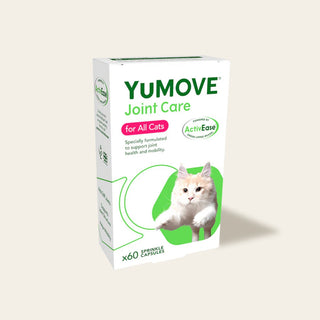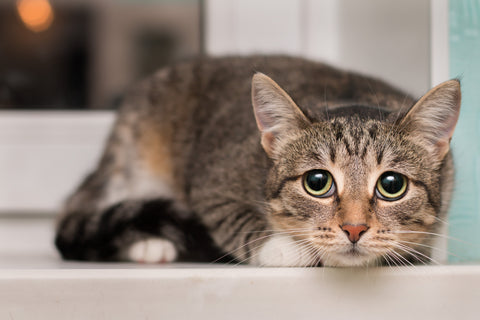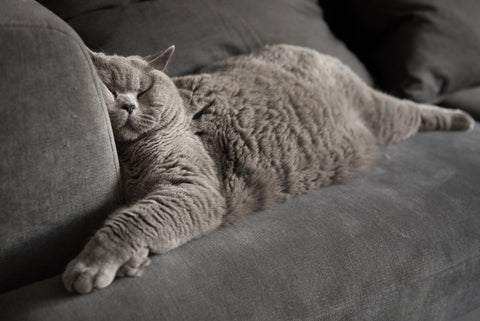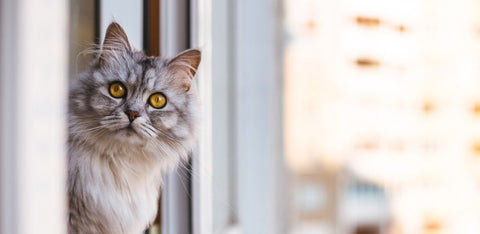
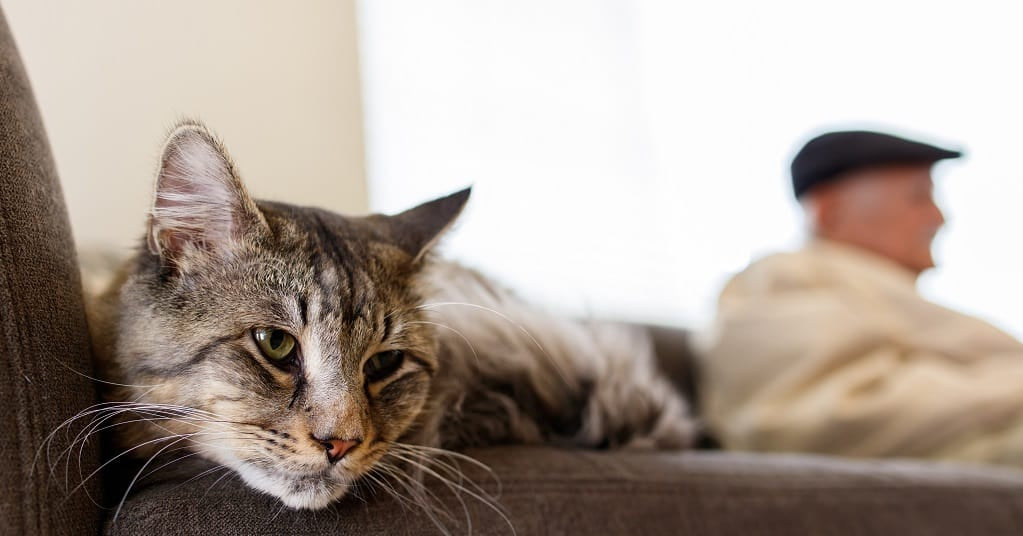
Spot the signs of stiffness in your elderly cat
Have an elderly cat? Are you finding that they can’t do all the things they used to? If so, it’s possible they might be dealing with joint stiffness and could use some extra support, such as cat joint supplements , to help them remain mobile and active. It’s important to learn how to spot some of the telltale signs.
We love so many things about our cats – their independence, their zest for life, and their eccentricities. So when that iconic attitude changes, it’s a good idea to investigate if they might have joint stiffness. Read on to find out what to look for.
“As affectionate as they can be, our feline friends are also notoriously aloof and independent in various ways. One consequence of their independent natures is that they often hide the symptoms of joint stiffness and go without much-needed support. We always recommend looking for any subtle changes in your cat’s behaviour that could point to an underlying issue.” – Lana Foster RVN, Veterinary Technical Executive Activator at Lintbells
Is your elderly cat more irritable? Stiff joints might be the reason
If your cat is stiff every time they walk, stretch or try to groom, there’s a good chance it will affect their mood and behaviour. Look out for the following signs:
- Snapping when handled – you may be putting pressure on sensitive joints when you lift your cat
- Refusing to come near you – if your cat is experiencing stiffness, they might avoid putting themselves in situations where they might be handled
Has your cat stopped grooming?
Cats are fastidious groomers, so you know something’s not quite right when they let themselves look a bit bedraggled. Stiff joints might mean your cat can’t raise their paws or twist and bend as easily when grooming. This can then lead to them missing spots and looking a bit dishevelled. You can help by:
- Consulting with your vet – first and foremost, we always recommend consulting with your vet if your cat appears to be struggling with their grooming or exhibits any other unusual behaviours.
- Supporting their joint health and mobility with good nutrition and supplementation – your vet can advise you on the best nutrition plan for your cat, and we’d certainly recommend adding YuMOVE Joint Care for All Cats to the mix for some extra supplemental support, or YuMOVE Joint Care PLUS for Cats if your feline friend is stiffer or older.
- Helping your cat groom – brush them regularly to remove dirt and matting from their fur. If possible, take them to a cat groomer who can help keep their appearance and hygiene in tip-top shape.
Is your cat sleeping more than usual?
Cats love to sleep. In fact, cats sleep an average of 16 hours every day. So, you might be forgiven for not noticing when your cat is sleeping more than usual. But this can be a sign of joint stiffness, particularly in elderly cats. So why does this happen?
- More easily tired – living with stiff joints can be tiring when you’re a cat. Your cat uses all their joints all the time and will need to rest more.
- Overweight? – If your cat is moving less, they might also be putting on weight, which can contribute to fatigue. It is worth a quick weigh-in at your vet and a re-assessment of their diet to help them manage their weight. Ask your vet for specific nutritional guidance and a weight loss plan, if in doubt.
Has your cat stopped jumping up?
Cats are naturally nimble creatures and are used to jumping up and down from substantial heights. This takes a lot of joint strength, so it’s not surprising if they’re finding it difficult to keep doing this when their joints become stiff. If you notice that your cat is reluctant to jump as high as they used to – or is not able to jump at all – it might be because of joint stiffness.
- Climbing assistance – you can help your cat climb without jumping, by placing stools, boxes or other climbing aids near the places where you know they like to be. Giving them some climbing support will help them to get back to their favourite spots again.
- Visit the vet – it can be tricky to spot the signs of stiff joints in your cat. If these ring a bell, spend a bit of time observing and recording your cat’s behaviour and visit your vet for a check-up.
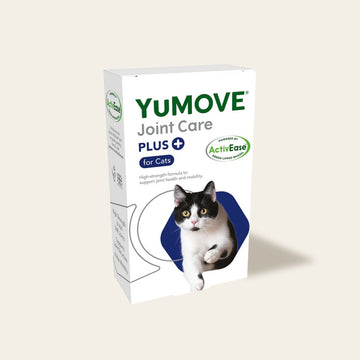
Joint Care PLUS for Cats
See product
Have you spotted any of the tell-tale signs that your cat could use some extra support? If so, explore our range of cat joint supplements – including YuMOVE Joint Care PLUS for Cats, our high-strength cat joint supplement designed for older and stiffer cats.
